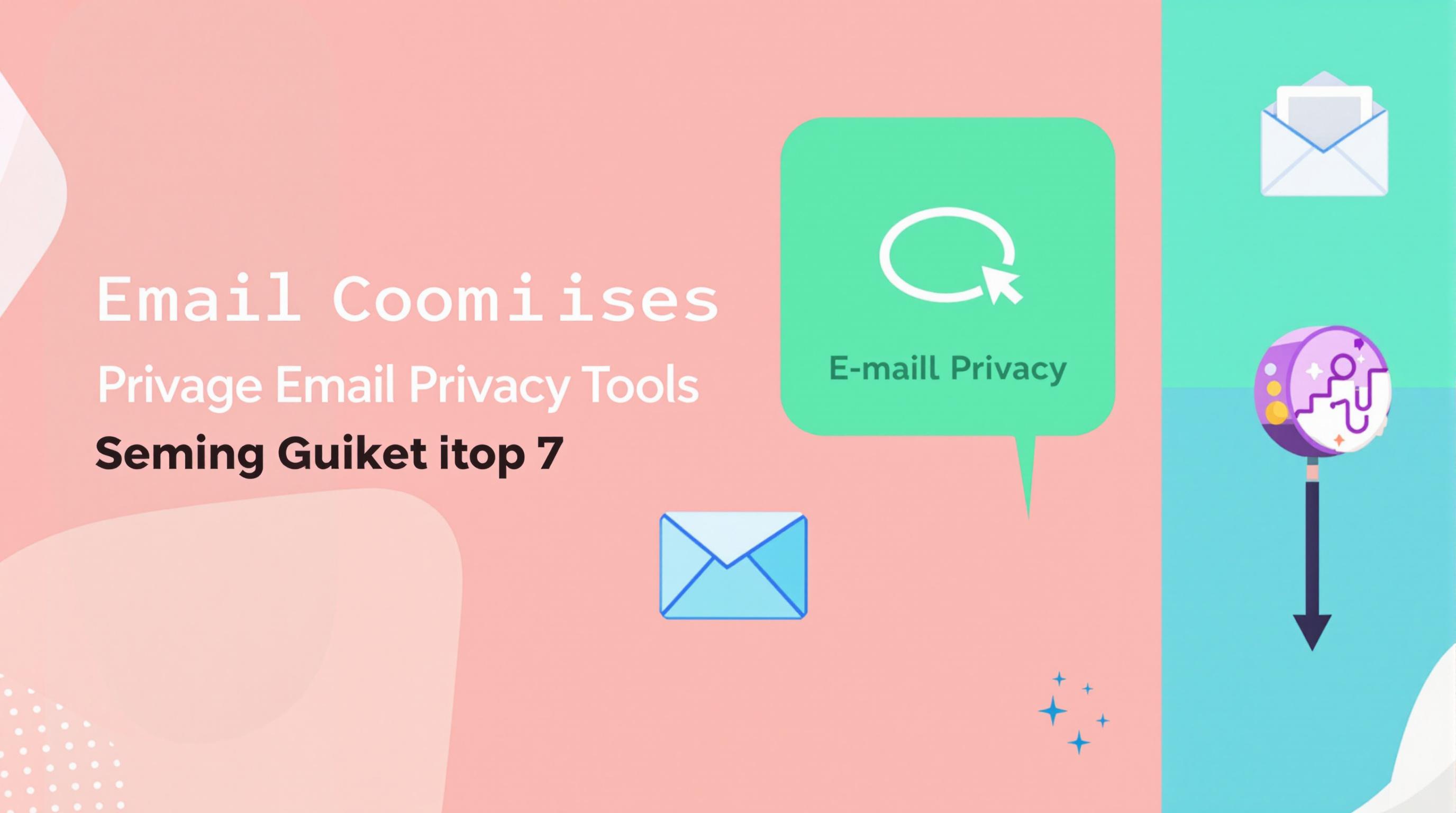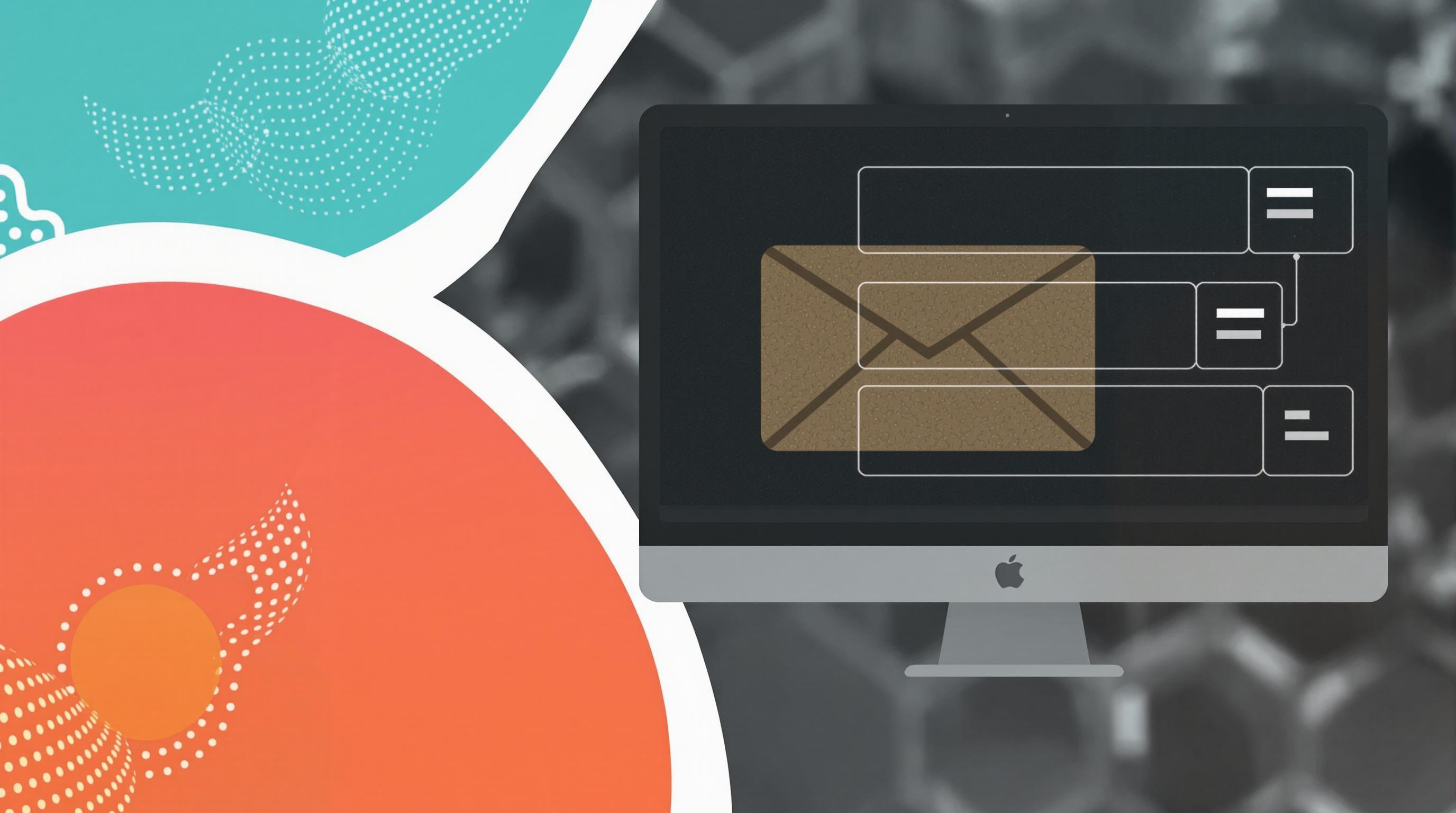Related Articles
- 8 Innovative Password Safes Released Since 2019 Changing How We Protect Our Digital Lives
- Top 6 Revolutionary Password Vaults Debuting Since 2019 That Are Disrupting Cybersecurity Norms
- 7 Innovative Browsers Released Since 2019 That Redefine Online Confidentiality and User Control
- Exploring Psychological Barriers to Adopting Enhanced Mail Safeguards Among Diverse User Groups
- Top 6 Privacy-Focused Browsers Launched Since 2019 That Outsmart Data Trackers Effortlessly
- How Antivirus Software Influences Environmental Footprints: Assessing Energy Use and Electronic Waste Trends
Top 7 Cutting-Edge Email Privacy Tools Launched Since 2019: An Expert Comparison and Buyer’s Guide
Top 7 Cutting-Edge Email Privacy Tools Launched Since 2019: An Expert Comparison and Buyer’s Guide
Top 7 Cutting-Edge Email Privacy Tools Launched Since 2019: An Expert Comparison and Buyer’s Guide
In an era where data breaches and cyberattacks are increasingly common, protecting one’s email privacy remains paramount. Since 2019, several innovative email privacy tools have entered the market, offering enhanced features such as end-to-end encryption, metadata protection, and anonymity. This article provides an expert comparison and buyer’s guide to the top 7 cutting-edge solutions launched since 2019, helping users identify the best fit for their privacy needs.
The landscape of email privacy software has evolved dramatically, integrating advancements in cryptography and user-centric design. Modern tools combine usability with robust security protocols, enabling users to guard their communications against surveillance, phishing, and data harvesting. Importantly, these solutions address both casual users and professionals requiring high-grade confidentiality.
Our analysis considers criteria such as encryption methods, ease of use, compatibility, additional privacy features, and pricing models. By highlighting the strengths and possible drawbacks of each tool, this guide aims to inform readers on making smart investments in their digital privacy.
1. ProtonMail Bridge (2019 Update)
ProtonMail remains a leading name in secure email services, and with its 2019 update — ProtonMail Bridge — it enhanced its appeal to users requiring integration with desktop email clients like Outlook and Thunderbird. ProtonMail Bridge decrypts and encrypts emails locally, allowing seamless use without compromising security.
The tool uses strong end-to-end encryption with zero-access architecture, ensuring even ProtonMail servers cannot read user emails. Its open-source cryptography protocols add transparency and trustworthiness to data protection. ProtonMail Bridge also supports PGP standards, making it interoperable with other encrypted email services.
While ProtonMail Bridge is available only to paid subscribers, the convenience of integrating encrypted mail into familiar interfaces justifies its cost. It is ideal for professionals and privacy-conscious users who want to maintain robust protection without sacrificing usability (source: ProtonMail official documentation).
2. Tutanota’s Enhanced Encrypted Email (2020 Launch)
Tutanota introduced a revamped email client in 2020 that strengthened encryption beyond traditional end-to-end standards by encrypting all data including subject lines and calendar entries. This protects against metadata leaks which many competing providers overlook.
The tool includes features such as anonymous sign-ups, two-factor authentication, and encrypted search capabilities which decrypt user data locally for private indexing. Tutanota supports open-source cryptography protocols and offers apps across multiple platforms, including desktop and mobile.
Its affordable pricing plans and commitment to privacy without ads make Tutanota a solid choice for both individual and business users aiming for comprehensive email privacy. Independent security audits have confirmed the robustness of its encryption infrastructure (source: Cure53 security audit report, 2021).
3. Mailfence (2019 Reboot with Enhanced Privacy)
Mailfence, a Belgium-based email service provider, overhauled its security architecture in 2019 to introduce stronger end-to-end encryption, digital signatures, and a blockchain-based anti-phishing system. Notably, it combines email with secure collaboration tools like calendars and document storage.
The service uses OpenPGP for encryption, giving users full control over private and public keys. Mailfence also emphasizes transparency by operating under Belgium’s strict privacy laws and offers no advertising monetization, fostering user trust.
Its flexible plans cater to individuals and organizations seeking an all-in-one privacy suite. The optional integration with existing email clients and a web-based user interface make it accessible while preserving confidentiality (source: Mailfence whitepaper, 2019).
4. StartMail’s Privacy-Focused Email Launch (2020)
StartMail emerged in 2020 as a privacy-focused email service developed by the team behind Startpage search engine. Its main selling point is delivering simple, private email with strong PGP encryption and no data profiling or advertising.
The interface emphasizes user-friendliness, simplifying encryption key management with automatic handling behind the scenes. StartMail also offers disposable email aliases for additional anonymity and mitigation against spam.
While StartMail lacks a free tier, its one-time purchase option offers users lifetime privacy benefits without subscriptions, appealing to privacy enthusiasts and professionals alike (source: StartMail official blog, 2020).
5. Canary Mail’s Smart Encryption App (2021)
Canary Mail launched its app with a focus on seamless, AI-powered encryption that integrates with popular email services such as Gmail and Outlook. Its "Smart Encryption" automatically detects sensitive content and suggests encrypting messages before sending.
The app supports PGP encryption with built-in key management, allowing users irregularly familiar with cryptography to communicate securely. Additional features include read receipts, secure attachments, and biometric unlocking for enhanced device security.
Canary Mail’s desktop and iOS versions gained praise for balancing strong encryption with excellent usability. Its subscription pricing is competitive, targeting users who desire privacy without complex setups (source: Canary Mail press release, 2021).
6. Mailvelope Browser Extension (2020 Enhancements)
Mailvelope revitalized browser-based email encryption with a popular open-source extension supporting major webmail providers such as Gmail and Outlook. The 2020 updates improved UI accessibility and integrated better with modern browsers.
Mailvelope uses OpenPGP standards to encrypt and decrypt messages locally, guaranteeing that private keys never leave the user’s device. It supports generating and managing cryptographic keys within the browser for convenience and security.
The tool is free and ideal for users who want to add encryption layers to existing email accounts without switching services. Its active community and continual updates ensure it stays aligned with emerging security needs (source: Mailvelope GitHub repository).
7. Thexyz Secure Email Suite (2022)
Launched in 2022, Thexyz combines secure email with business-grade collaboration tools, providing end-to-end encryption alongside anti-spam and malware protection powered by AI. Its cloud-based platform offers encrypted storage and calendar features.
Thexyz supports two-factor authentication, S/MIME encryption, and secure SMTP relays. The service integrates with mobile and desktop clients, facilitating enterprise adoption with ease.
Targeted toward small and medium businesses, Thexyz balances security, productivity, and compliance. Its transparent privacy policies and 24/7 customer support help build user confidence in managing sensitive communications (source: Thexyz official website, 2022).
Comparative Features Summary
All seven tools champion privacy through encryption, but differ in implementation and scope. ProtonMail Bridge and Canary Mail focus on interoperability with popular email clients, while Tutanota and Mailfence emphasize full-stack encrypted ecosystems including calendars and contacts.
StartMail appeals with its simplicity and unique disposable email alias feature. Mailvelope aids users who prefer staying within their existing webmail interfaces without switching providers. Thexyz targets the enterprise sector with robust collaboration and compliance features.
Pricing models vary from free open-source tools (Mailvelope) to subscription plans (ProtonMail, Canary Mail) and lifetime purchases (StartMail), offering choices based on user preferences and budget constraints.
Buyer’s Guide: Choosing the Right Email Privacy Tool
When selecting an email privacy tool, consider your threat model, technical comfort, and primary use cases. For instance, if you need strong integration with desktop clients, ProtonMail Bridge or Canary Mail are excellent choices. For comprehensive metadata encryption, Tutanota excels.
Evaluate the trustworthiness of providers by reviewing their jurisdiction, open-source transparency, and third-party audits. Services like Mailfence and Tutanota operate under rigorous privacy laws and have undergone security audits, bolstering credibility.
Also, examine user experience factors including interface simplicity, customer support availability, and mobile app presence. Balancing security with practicality ensures sustained adoption and effective privacy protection over time.
Conclusion
Since 2019, significant strides have been made in email privacy technologies, reflecting growing awareness and demand for secure communication. The seven tools reviewed showcase diverse approaches to protecting email content, metadata, and user anonymity across multiple platforms.
Understanding their unique features and positioning helps users and organizations make informed privacy investments. By adopting these cutting-edge solutions, email users can regain control over their personal and professional data in an increasingly surveilled digital landscape.
For further reading, consult the respective official documentation and independent security reviews to keep abreast of ongoing developments in email privacy technologies.




